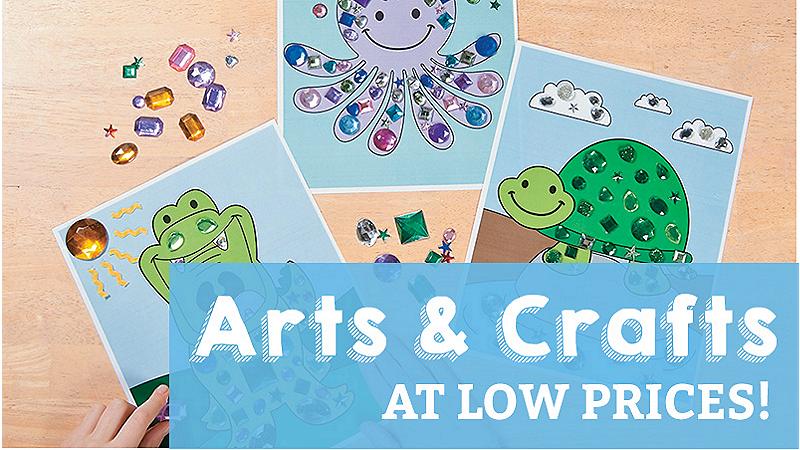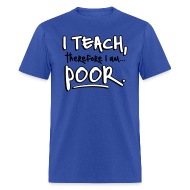Today I have a guest post from Sheldon at The Knowledge Roundtable. Sheldon shares 5 misconceptions about tutoring.
5 Major Misconceptions about Tutoring
Tutoring is an oft-overlooked
piece of the education puzzle. While just about everyone has memories about
learning in school, a significantly smaller number of people actually have
first-hand recollections about learning with a tutor. Because of this
experience gap, people often make assumptions about what it is a tutor does and
the different roles tutoring can play in a student’s learning.
As with most assumptions,
there is a degree to which logic and oversimplification cloud reality. The fact
of the matter is, great tutors can make huge impacts in students’ lives. However,
when parents and educators give in to misconceptions about what tutoring
actually is, students can wind up cut off from educational help and support
that could make a significant difference in their growth.
Misconception 1: “Tutors are just for struggling students.”
Probably the biggest misconception about tutoring is that only students having
difficulty in school can benefit. In actuality, tutors can make positive
impacts in more areas than just remediation.
There are tutors that specialize in a wide variety of capacities
beyond just closing learning gaps; some of these areas include:
- · Foreign languages
- · Standardized test prep
- · Creative writing
- · Entrepreneurship
- · STEM skills (coding, circuitry, engineering, CAD, practical sciences)
- · Fine Arts (Music, painting, sculpture, etc.)
For students that do not have access (or room in their
course schedules) to explore these types of content, tutoring can be a viable avenue
for enrichment.
Misconception 2: “If the teacher was doing his job, my kid wouldn’t need a tutor!”
As both a teacher and a tutor, this one stings a little. I
have had this very conversation with a number of former clients. While I’ve
always taken the high road and avoided the bait to speak negatively about those in my profession, I understand the frustration.
To be fair, some teachers are more effective in their craft
than others are. Yet, many of the reasons students wind up seeking extra help
are not exclusively due to the strengths or weaknesses of their teachers.
The reality is, classroom instruction and tutoring are very
different learning scenarios. In the classroom, all of the students are vying
for the personal attention of only one (or in some cases, a few) educators.
Strong teachers find ways to differentiate and personalize the learning
experience so that each student gets opportunities for tailored instruction and
help, but there is only so much time to go around.
It can be tempting to blame the institution, but in the end,
all students need different types of support to find academic success. If the
allotted time in a school day isn’t enough for a student, there’s no real
reason to hunt for someone or something to blame; put the energy into finding a
solution.
For students who need additional attention, whether it be
for support, skill-building, or additional challenge, parents must accept that time
outside of class (and outside of a teacher’s control) is crucial.
In many cases, parents can step in and fulfill some of these
needs. That said, there are limitations like conflicting schedules or content complexities
that can turn parental support into a frustrating, counterproductive
enterprise.
Enlisting the help of a qualified tutor can be the ticket
for a student in need of extra, custom-made learning opportunities. Setting
aside structured time outside of the school day can be the key to supporting
students who need more chances to focus on learning.
Misconception 3: “Why should I hire a tutor if my child’s school has an after school homework club?”
Schools aren’t blind to the fact that kids sometimes need
some extra help and support beyond the classroom. It is unfair to assume that
all students have homes where academic support is at the ready.
To address this need, many schools and community centers
offer after-school “homework clubs” where kids can grab a snack, work on
homework, and have access to helpful adults. The problem is, students in these
environments have to contend with challenges and distractions that they would
not face in a typical tutoring scenario:
·
High student-to-adult ratios
·
Access to socialization and technology
·
Staff may not have the academic background to
help with certain, specialized content
·
Students must be able to self-monitor to ensure
work gets done
·
Limited opportunities for students to recharge
after a full school day
These programs can be quite helpful for students who have
the focus and discipline to make the most of them. However, for others, the
results may vary.
Misconception 4: “If I pay a tutor to help my child, her scores will automatically go up.”
The old adage, “You get what you pay for,” doesn’t really fit the mold of a
service like tutoring. A high-priced tutor can sit with a student session after
session, but if that student never picks up a pencil or does a lick of
practice, there will be no growth.
Accountability
matters. Tutors help guide pupils through skill-building and practice
efforts, but students must do the work to produce the results.
When enlisting a tutor, students and parents must be committed to
supporting the efforts both during and between sessions to ensure they are
getting their money’s worth.
Misconception 5: “Certified teachers are better tutors than non-teachers.”
While this correlation seems to make logical sense, it isn’t always true. Certified
teachers are typically more expensive
tutors than their non-certified counterparts are, but that doesn’t necessarily
mean they are automatically more effective.
When it comes to choosing a
tutor, finding help that is experienced, reliable, and a good fit
for your child’s needs matters more than a teaching license. It always pays to
take the time to interview multiple candidates, call references, and even hold
trial sessions before committing to a tutoring relationship.
Tutoring may not be the educational answer for every
student, but it is an important option worth considering. The key is to evaluate
it sincerely without simply giving in to the misconceptions.
Sheldon Soper is a ten year veteran of the teaching
profession and currently serves as a junior high school teacher in southern New
Jersey and as a writer for The Knowledge Roundtable, a free tutoring marketplace.
His primary focus is building reading, writing, and research skills in his
students. He holds two degrees from Rutgers University: a B.A. in History as
well as a M.Ed. in Elementary Education. He holds teaching certifications in
English Language Arts, Social Studies, and Elementary Education. Thomas has
also worked as a tutor for grades ranging from second through high school in a
wide variety of subjects including reading, writing, calculus, chemistry,
algebra, and test prep. His core educational beliefs stem from the notion that
all students can be successful; it is the role of educators to help facilitate
growth by differentiating and scaffolding student learning on a personal level.












